Last Updated on January 10, 2026 by Ioana
Spain is such a beautiful country! It has gorgeous architecture, a rich history, lots of beaches, warm weather, and warm people. However, especially if you live in the United States, and visit Spain for the first time, you will experience cultural differences. I’ll let you know what are the biggest culture shocks in Spain, so you are aware of the cultural norms ahead of your trip. This post contains affiliate links. When you make a purchase I may get a small commission at no extra cost to you. Find out more here.
Planning your next trip? Check out these helpful resources:
Spaniards eat both lunch and dinner late
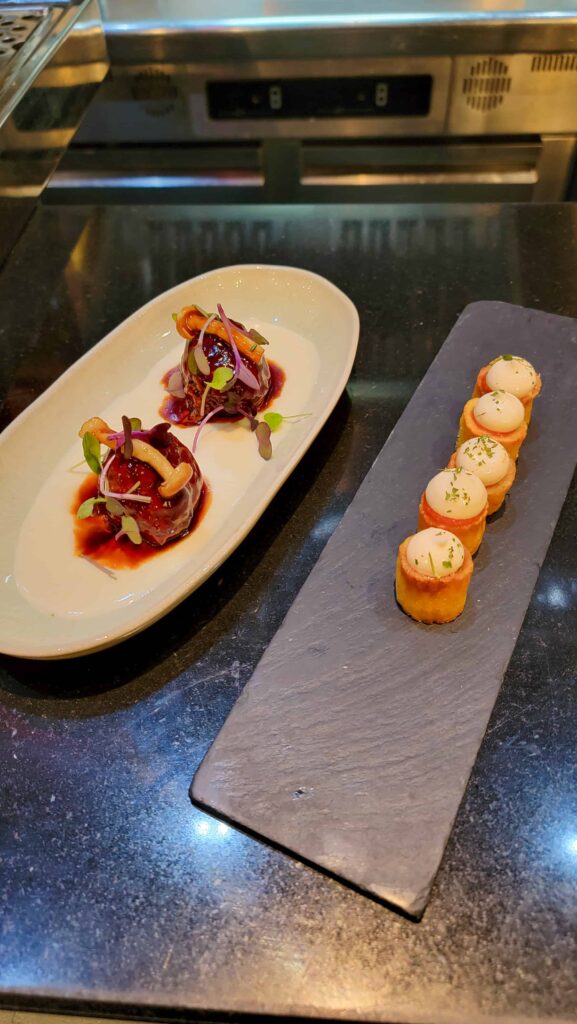
The late meal times were a big shock for me. I eat early. For me dinner is around 6pm. Well, not in Spain! They open restaurants for dinner only around 7 or 8pm.
And if you go to a restaurant right when they open there will be nobody there as everyone prefers to eat later (after 9pm usually). I guess the advantage is that you have an entire restaurant for yourself.
It’s the same story for lunch. If in the US people eat lunch around 12pm, restaurants won’t even be open in Spain at that time. Lunch is usually around 1-4pm. And it’s the same story as dinner. If you go around 1pm, there won’t be a lot of people in the restaurant.
The other thing you should know is that restaurants open for a few hours for lunch, then close in between lunch and dinner, and open again for dinner. There are a few restaurants open the entire day, but they tend to cater towards tourists, so the quality and authenticity is lacking.
Also, if you visit during August, a lot of restaurants will be closed for the month because August is vacation month in Europe. So a lot of restaurants and small businesses will be closed.
✈️ Heading to Spain soon? Check out these guides:
- The best Barcelona hotels with rooftop pools
- The best neighborhood to stay in Barcelona
- Where to stay in Madrid first time: 9 areas you’ll love
- Barcelona 3 day itinerary: the best things to do
- Hidden gems in Madrid: the city’s best-kept secrets
- Casa Batllo vs Casa Mila: which one is the best?
- Buying nun cookies in Madrid: the best adventure
- Souvenirs from Barcelona: best things to bring home
Tortilla in Spain is totally different from tortilla in Mexico
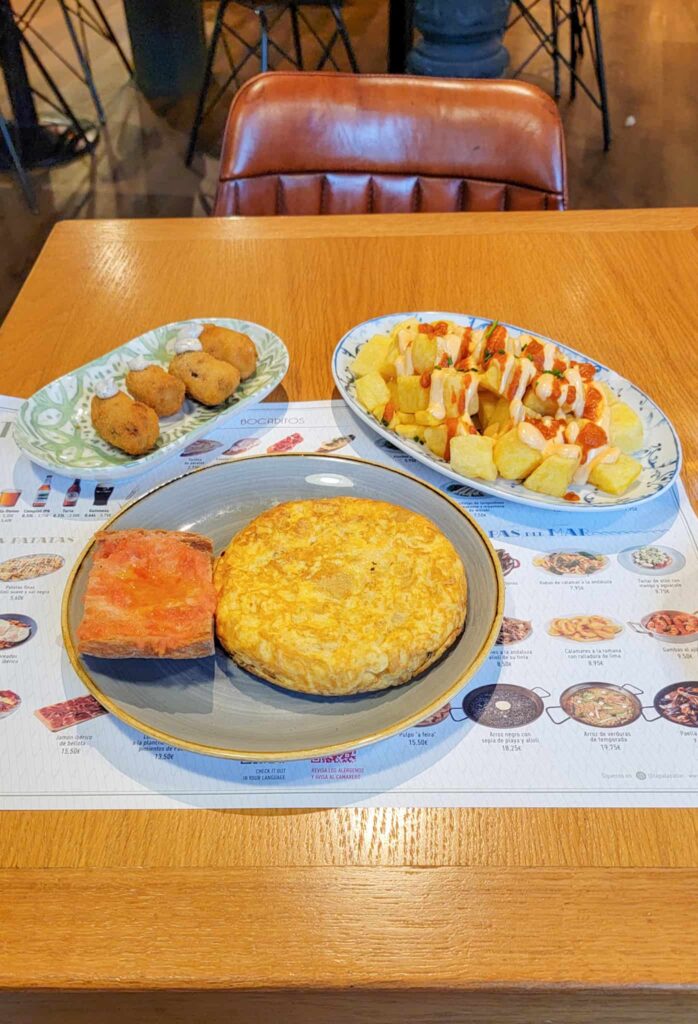
When I hear the word tortilla, I think of that flat, flour or corn, wrap that’s used for burritos or tacos. That’s basically the definition of a tortilla in all Latin American countries.
In Spain, tortilla is a dish made of eggs. It’s basically a round, thick omelette made with potatoes. You’ll see “tortilla de patatas” a lot on menus. That means tortilla with potatoes.
This can be a big culture shock if you live in America (both North and South). Spanish tortilla is delicious and it’s a dish that Spanish people are very proud of, but it’s a very different concept compared to the tortilla used for burritos. You should definitely try it when you visit!
A night out ends in the morning
Spanish people know how to party. Their parties start late and end in the morning. None of those parties where you’re back home at midnight or 1am.
That’s when a party starts in Spain. So if you want to experience this style of going out, make sure you are well rested before the party.
You can find lots of great parties in any large Spanish city like Madrid or Barcelona. If you want to also experience the Spanish party island, then make sure to spend a few days in Ibiza and check out the parties there too.
People can stay as long as they want at a restaurant
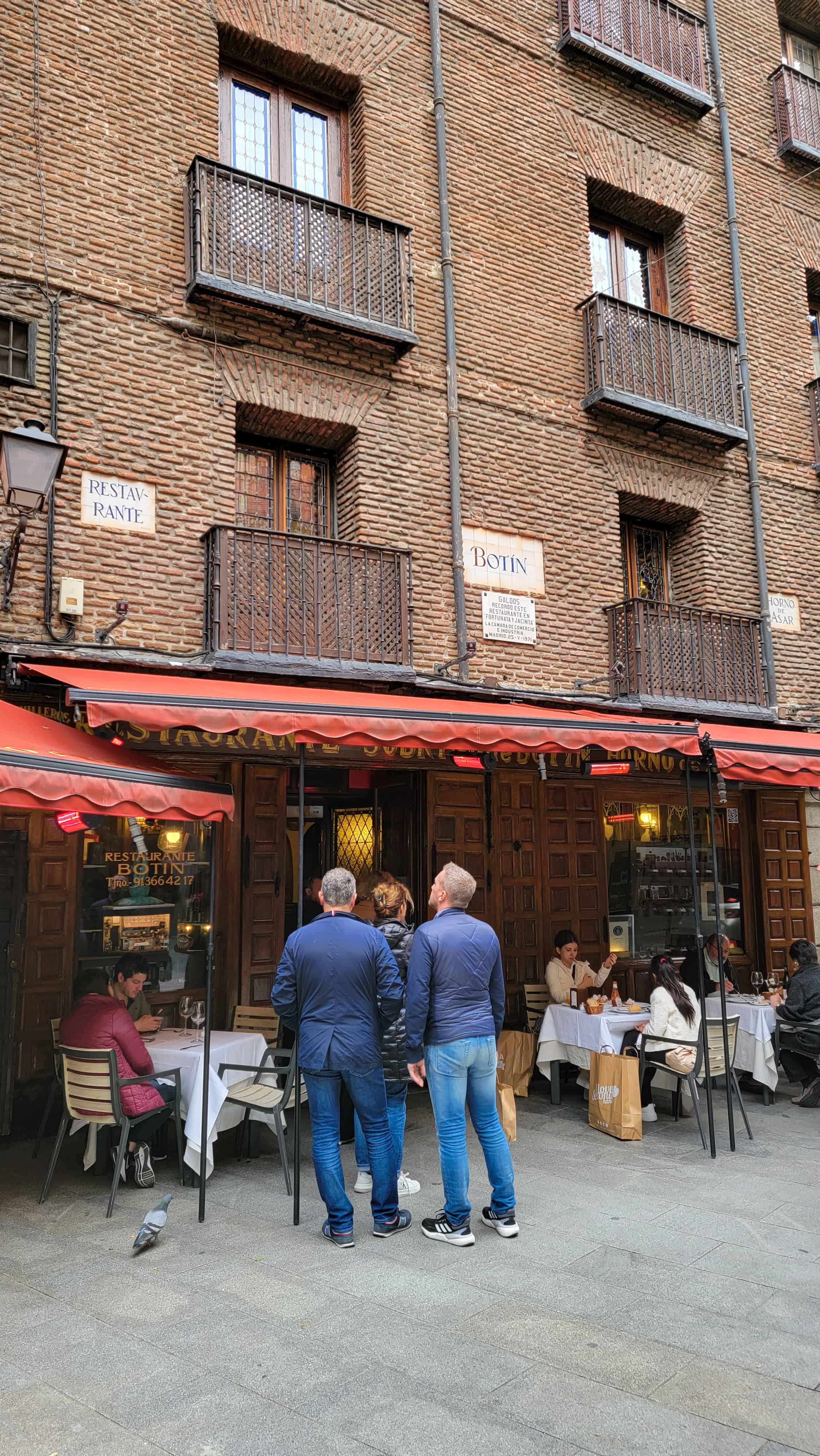
You know how in the US, especially in larger cities, you can stay in a restaurant for about 90 minutes only? I had restaurants in NYC reinforce this rule. And in general, people in the US are always in a hurry and they don’t want to spend a lot of time in restaurants.
The US culture is very much focused on productivity and efficiency, so spending 2+ hours in a restaurant would just mean a bad review for that restaurant since they can’t serve you the food fast.
Spanish culture (I’m going to generalize and say European culture) is very different. People are not as focused on productivity and efficiency, but on enjoying life.
That means that they like to spend 2+ hours at dinner with their group of friends or family. They love to socialize and spend as much time as possible with loved ones. So there is no time limit in restaurants.
Plus, you won’t get the bill as soon as you finish eating, like you get in the United States. In Europe you actually have to call the waiter and ask for the bill.
That’s because they don’t want to disturb you while you enjoy a night out with friends or family. If you’ve never been to Europe before, this is probably one of the biggest cultural shocks you’ll experience.
A pharmacy in Spain is very different from a pharmacy in the US
A pharmacy like CVS in the United States is basically a grocery store or a department store. It was a big cultural difference for me when I moved to NYC.
You can find everything in a pharmacy in the US: food, personal care items, drinks. Literally everything. And they just have a counter at the back of the store that’s the actual pharmacy where you can get your prescription drugs. It’s wild!
In Spain, and pretty much all of Europe, a pharmacy is just a small store and the only thing they sell is drugs. That’s it. You can’t get anything else there. It’s up to you to decide which option you like better. This is just another example of the different cultures around the world.
Spanish people are informal
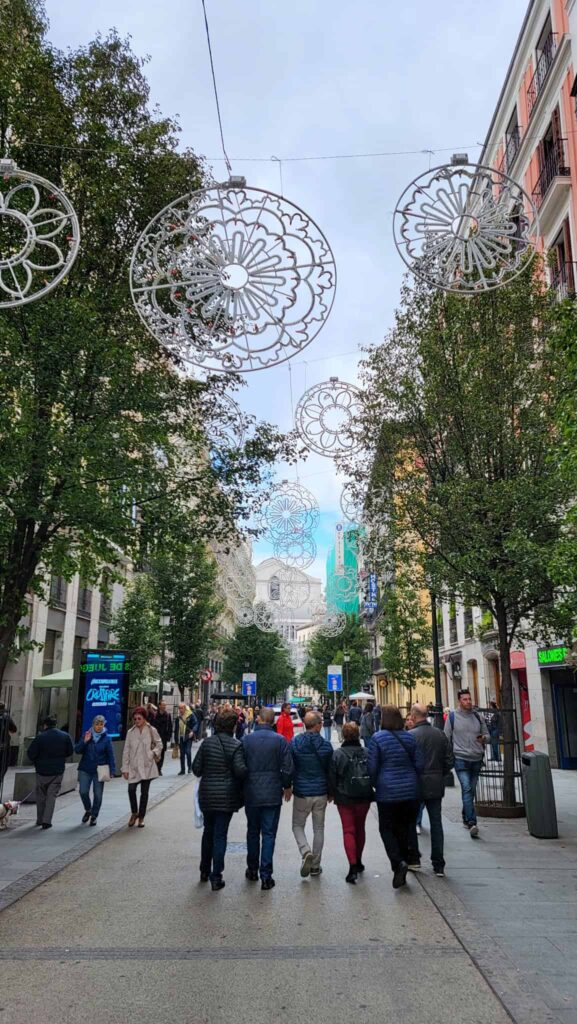
Spanish people are super friendly and they can seem more informal. They kiss each other on their cheeks as a greeting when they see each other on the street or in public places.
They sit pretty close to you when you chat, so you have less personal space. The way they speak is loud and fast. I love it and I think Spanish people are amazing. So just embrace this new culture when you visit.
English is not as widely spoken as in other European countries
If you travel to other European countries, you’ll see that English is widely spoken. I always try to learn a few words in the local language ahead of my trip, but usually people can tell you’re a tourist and they immediately switch to English.
In Spain people don’t speak English as widely as in other countries in Europe. And even when they speak it, it’s usually broken English. This was a bit of a culture shock.
I speak Spanish (I learned it as a kid from telenovelas!), so I always spoke with them in Spanish. It would be a good idea to learn a few basic phrases in Spanish ahead of your trip to avoid the language barriers.
Spaniards speak fast and are loud
Spaniards are very warm people and they are very passionate when they speak. Which means that they speak fast and you’ll hear a lot of loud conversations on the street in Spain.
Honestly, it’s the same with most Latin people. Italians and Romanians are the same, for example. I personally love it since I grew up in Romania. However, if you are from a different part of the world it might shock you to hear these loud conversations everywhere.
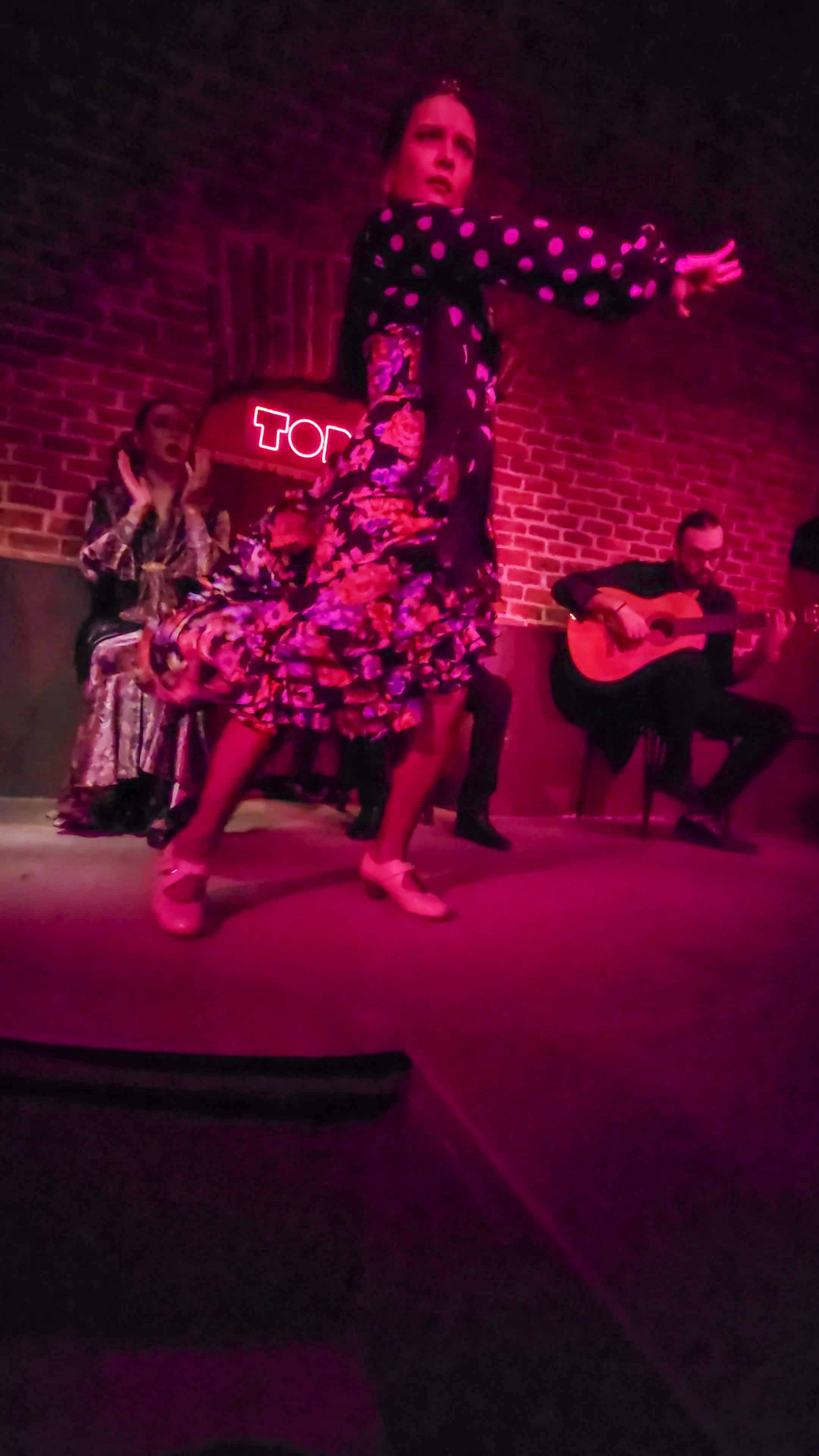
Spaniards use olive oil in (almost) everything
Spain is one of the world’s largest producers of olive oil. And it’s a staple of the Spanish diet. They add it to everything: on bocadillos, in salads, in cakes. Literally everywhere.
The Mediterranean diet is supposed to be one of the healthiest in the world, so enjoy the abundance of high-quality olive oil. And make sure to take at least a bottle home as a souvenir.
✈️ Heading to Spain soon? Check out these guides:
- The best Barcelona hotels with rooftop pools
- The best neighborhood to stay in Barcelona
- Where to stay in Madrid first time: 9 areas you’ll love
- Barcelona 3 day itinerary: the best things to do
- Hidden gems in Madrid: the city’s best-kept secrets
- Casa Batllo vs Casa Mila: which one is the best?
- Buying nun cookies in Madrid: the best adventure
- Souvenirs from Barcelona: best things to bring home
Need inspiration for your next trip? Check out some of my other articles.
Florence 4 day itinerary: the best guide for solo travelers
Solo female travel to London: the ultimate guide
Paris solo travel: everything you need to know
The best guide for solo travel to Amsterdam
Athens 4 day itinerary: ultimate guide for your first visit
The best Oradea 3 day itinerary: a native’s top picks
Madrid in 5 days: the ultimate first visit itinerary
4 Day Dublin itinerary: everything you need to know
Solo travel in Milan: the best things to do
Istanbul bucket list: everything you need to visit
Solo travel in Vienna: how to have the best trip
Beginner’s guide to NYC: everything you need to know
Ultimate Chicago 4 day itinerary for your first visit
Solo travel to Toronto: the ultimate 2 day itinerary

Ioana was born and raised in Romania, lived in NYC for 14 years, and has since returned to Romania. She began traveling solo at 30 and has now visited 25+ countries. Ioana is a full time travel blogger and content creator. Her blog gets 100K+ views per month and her Instagram community has 80K+ people. She loves to share practical travel tips, itineraries, and recommendations for fellow travelers. Her story and insights have been featured in The Daily Express, Euronews, Bored Panda, Yahoo, MSN and more.
